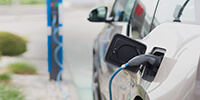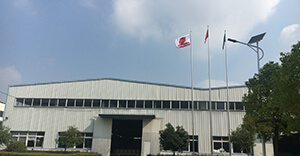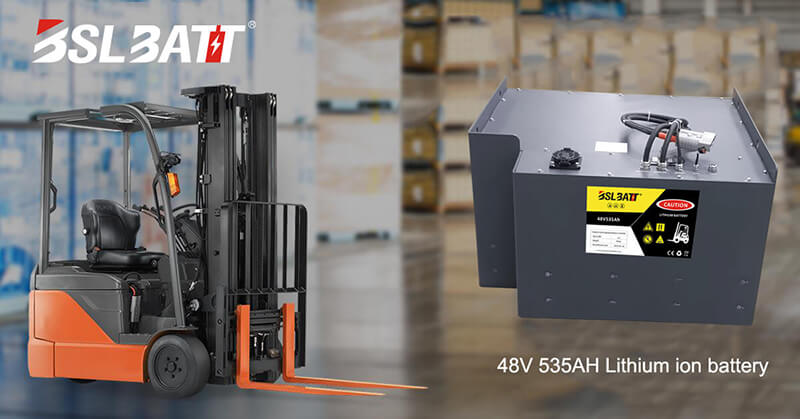lithium forklift batteries vs Lead Acid Forklift Batteries: Which Are Best?
|
Especially in recent years, the world of batteries has grown to include a plethora of very different options. They all achieve the same thing, but their ease of use, safety, reliability, efficiency, affordability and environmental impact all vary significantly – which can make it difficult to choose. Luckily, for those of you who depend on forklifts to run your businesses, the choice essentially comes down to two preferred types of forklift batteries: lead-acid and lithium-ion. The biggest reason is that the potential cost savings are enormous. It’s true that lithium forklift batteries do cost considerably more than lead acid batteries, but they last 2-3 times longer and create dramatic savings in other areas that guarantee you a significantly lower total cost of ownership. Here are some of the key advantages that make powering your electric lift trucks with lithium batteries a smart decision: ● Dramatic cost savings So, let’s look at how they stack up. How Are These Batteries Different? Lead-acid battery technology is a century and a half old, having been first successfully invented back in 1859. The technology has greatly improved since then and has held on until the present day. Lithium-ion battery technology, on the other hand, was first introduced in 1991, when Sony put them on the market. These revolutionary batteries make every modern convenience possible today: smartphones, tablets, Teslas, etc. The most important difference for these two types of batteries, when it comes to powering forklifts, is their ease of use. Lead-acid batteries require 8 hours to charge and 8 hours to cool down, ambient-controlled storage rooms, heavy swapping practices, exposure to corrosive acid, watering maintenance and other time-intensive routines. Lithium-ion, on the other hand, simply needs to be plugged in for an hour or two when the battery gets low on charge. fast-charging-of-lithium-battery Dramatic cost savings: Because lithium ion batteries last so much longer than traditional lead acid batteries, the cost savings begin to add up quickly and end up being substantial over the much longer life span of this game-changing forklift power source. Other factors that contribute to a more cost-efficient warehouse operation include: ● Far less money spent on energy for charging batteries Charging Time Lithium-ion batteries charge faster, don’t emit potentially harmful gases while charging and do not require cool-down interval used in charging lead-acid batteries. These are all enticing benefits. However, for now it seems lead-acid is the mainstay, even given that the watt-per hour cost of lithium-ion is five times that of lead-acid. We will have to see major changes from the forklift manufacturers before lithium-ion surpasses the revered traditional lead-acid forklift battery. What About Maintenance? The charging routine isn’t the only maintenance that lead-acid batteries require. There are a number of things that need to be looked at regularly: Equalizing: When the acid and water inside of a lead-acid battery become stratified, meaning the battery acid is more concentrated toward the bottom of the unit, it won’t hold a charge quite as well. This is why many of these batteries need to be equalized (cell balanced), which rebalances everything – and requires a charger with an equalization setting (and has to be done every 5-10 charging cycles). Fluid levels: Lead-acid forklift batteries need to have the correct amount of water to work at their best level. Fluid will likely need to be topped off every 10 charges, approximately. “Watering batteries” can be messy, tedious work for a single battery, yet quickly becomes a laborious chore to manage when dealing with fleets of lifts in large operations. Temperature: Lead-acid batteries lose cycles, and therefore have a shorter lifespan, when they are stored and used in higher temperatures. Meanwhile, lithium-ion batteries perform cell balancing/equalizing automatically when they are charged to 100%. There is no fluid to deal with and ambient temperatures have less effect on lithium-ion. When it comes to maintenance, lithium forklift batteries certainly come out on top. How Long Do They Last? The service life of lead acid batteries is, in general, around 1500 cycles. That number, however, is greatly impacted by the use and maintenance of each battery. Not properly charging, storing, or equalizing the battery will reduce the number of discharge cycles that a battery can handle in its lifetime. Lithium forklift batteries generally last for close to double that of lead acid batteries: 3000 cycles. What About Safety Concerns? Another big difference that businesses need to consider is the safety of their employees who have to work with these forklift batteries personally. After all, both of these batteries are driven by powerful chemicals. Lead Acid forklift batteries are made from toxic lead and sulfuric acid, which – as you probably already know – aren’t anywhere close to healthy for humans to ingest. These batteries must be watered weekly, which leads to risk of spilling the dangerous acid if it’s not done safely. They also generate a lot of heat when they are charging, so they should be kept in a temperature-controlled room (which also costs money) and properly vented. On top of that, they can even spew out an explosive gas when they reach the top of their charge. Lithium-ion batteries from Wisdom Power are built with one of the most stable lithium-ion chemical combinations out there: Lithium-iron-phosphate (LFP). The cells are completely sealed, so there is no risk of spills. The only potential risk is that the electrolyte is flammable and one chemical component inside lithium batteries produces a corrosive gas when it comes in contact with water. But, because lithium-ion batteries are sealed, there is no corrosion, sulfation, acid spills or contamination to worry about usually – which is much better for the environment as well. Here at Wisdom Power, we are industrial battery experts. We carry industry leading brands like BSLBATT, whose batteries deliver a level of performance and reliability unmatched by any in the industry. We are experts in battery handling technologies. With batteries, chargers, parts, accessories and systems installations, make sure you talk with a Wisdom Power battery expert if you are in the market for traditional lead-acid batteries, lithium-ion batteries and battery handling charging systems to power your business forward. |














